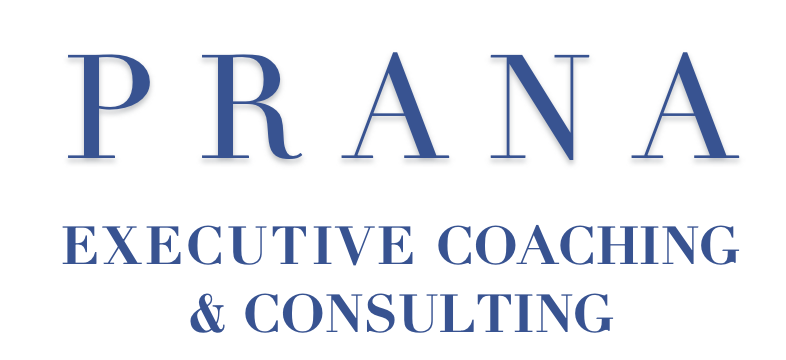How to Select an Executive Coach
The executive coaching industry has grown significantly over recent decades, driven by an increasing recognition of its impact on leadership development and organizational success. The industry’s rise can be traced back to the 1980s and 1990s, as companies shifted their focus toward developing leaders who could navigate complex, rapidly changing environments. Today, the executive coaching industry is valued at over $2 billion annually worldwide, indicating the strong demand for specialized, personalized leadership support.
Research shows that good executive coaching enhances self-awareness, decision-making, and resilience, making it particularly valuable in today’s business landscape, where emotional intelligence and adaptive leadership are key. Furthermore, companies now see executive coaching as an investment that not only strengthens individual performance but also drives broader organizational outcomes, such as employee engagement and retention.
So, how do you select a great executive coach? A review of research indicates five critical factors:
Trust by way of “chemistry”
The quality of the relationship between the coach and the executive is often considered the foundation of successful coaching. Research by Boyce et al. (2010) shows that trust, empathy, and rapport are essential in creating an open, productive space that allows executives to reflect and explore their challenges without fear of judgment. Clients want to feel a natural chemistry with their coach; great coaches know how to use exemplary interpersonal skills, including listening and empathy, to establish trust and chemistry.
Coach's relevant experience
A coach’s background and experience, especially in understanding the organizational and leadership context, significantly influence coaching effectiveness. According to a study by de Haan et al. (2013), coaches with knowledge and experience in relevant fields are more capable of providing insight that aligns with the executive’s challenges. Big corporate environments bring different challenges than start-up cultures, as one example. Practical experience in similar business settings is an important factor to consider when selecting a coach.Coach education and qualifications
Given the growing number of coaches, the qualifications and expertise of an executive coach are critical. Research by de Haan et al. (2013) emphasizes that coaches with formal coach training are more successful in helping executives navigate complex leadership challenges. Qualified coaches bring theoretical frameworks and practical insights that foster meaningful, goal-oriented discussions and tailored solutions, enhancing the executive's growth and performance. Furthermore, trained coaches are more adept at fostering self-reflection and providing actionable feedback, essential elements for sustained development (Grant, 2014).Goal Clarity
Clarity of goals and a well-defined structure that is tailored to the executive’s unique challenges are critical. A study by Grant (2014) highlights that goal-focused coaching—where objectives are clearly defined and measurable—is associated with better outcomes. Great coaches will start the engagement by asking “What do you want to achieve?” and “What does success look like?” and will continue to help the executive to refine their goals and to be clear on success states as the engagement continues to unfold.Defined Coaching Process
Coaches with a thoughtful, well-defined coaching process will lead more effective and successful coaching engagements. A great coaching process will include two key features that are essential for sustaining progress: Providing timely, actionable feedback and accountability mechanisms. Research by Athanasopoulou and Dopson (2018) indicates that executives benefit from structured feedback, which helps them to become aware of their strengths and developmental areas. For this reason, many coaching engagements start with a 360 assessment or, at a minimum, include the manager and/or HRBP in an in-depth discussion on the strengths and opportunities. Additionally, accountability mechanisms encourage executives to follow through on their commitments and actions; without this, leaders will simply revert to the behaviors of the past. Processes should be customized, considering the executive’s role, personality, and the organization’s culture to enhance the relevance of the coaching engagement.
These factors can help to create a robust selection framework to choose a great executive coach who can work with your leaders.
References
Boyce, L. A., Jackson, R. J., & Neal, L. J. (2010). Building successful leadership coaching relationships: Examining impact of matching criteria in a leadership coaching program. Journal of Management Development, 29(10), 914-931.
de Haan, E., Duckworth, A., Birch, D., & Jones, C. (2013). Executive coaching outcome research: The predictive value of common factors such as relationship, personality match, and self-efficacy. Consulting Psychology Journal: Practice and Research, 65(1), 40.
Grant, A. M. (2014). The efficacy of executive coaching in times of organizational change. Journal of Change Management, 14(2), 258-280.
Athanasopoulou, A., & Dopson, S. (2018). A systematic review of executive coaching outcomes and potential mechanisms: Implications for the development of cross-cultural coaching practice. Human Resource Development Review, 17(3), 255-285.
Kets de Vries, M. F. R., Korotov, K., & Florent-Treacy, E. (2010). The coaching kaleidoscope: Insights from the inside.
